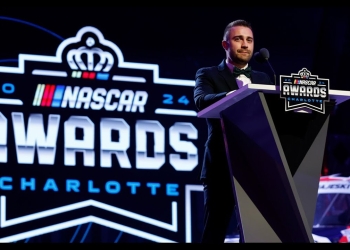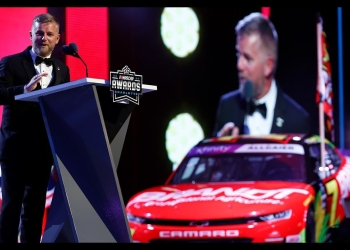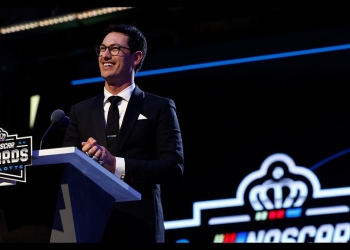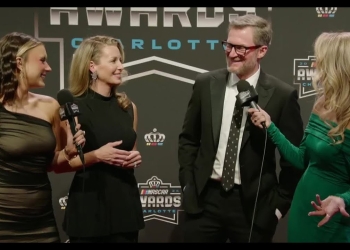The Relentless Pursuit: How Determination Conquered NASCAR's Road Course King
In the high-octane world of NASCAR, where split-second decisions can mean the difference between glory and heartbreak, Chris Buescher's triumph at Watkins Glen International stands as a testament to the power of perseverance. The race, which saw the fall of road course virtuoso Shane van Gisbergen, wasn't just another notch in the belt of the NASCAR Cup Series—it was a masterclass in grit, strategy, and the unyielding human spirit.The Underdog's Ascent
Buescher, often overshadowed by more prominent names in the sport, entered Watkins Glen with a chip on his shoulder and fire in his eyes. His RFK Racing Ford Mustang wasn't the bookies' favorite, but what Buescher lacked in star power, he more than made up for in sheer determination. As the green flag dropped, the familiar roar of engines filled the air, a symphonic cacophony that every racing aficionado knows by heart. Buescher's strategy was clear from the outset:- Maintain consistent lap times
- Conserve fuel when possible
- Stay out of trouble in the notoriously tricky "Bus Stop" chicane
Van Gisbergen: The Road Course Phenom
Enter Shane van Gisbergen, the New Zealand-born Supercars champion who had taken NASCAR by storm with his road course prowess. Fresh off his historic Chicago Street Race victory, "SVG" was the man to beat on any track that dared to turn right as well as left. Van Gisbergen's talent was undeniable. His car control in the carousel turns was nothing short of balletic, a stark contrast to the muscular, brute-force driving often associated with stock car racing. It seemed, for all intents and purposes, that Watkins Glen would be another jewel in the Kiwi's rapidly expanding crown. But motorsport has a way of humbling even the mightiest of talents.The Turning Point
As the laps ticked away, a curious dance began to unfold. Buescher, running a metronomic pace, began to close the gap on van Gisbergen. It wasn't flashy—there were no dramatic passes or daring dives into corners. Instead, it was a relentless, almost inevitable progression.Click here to preview your posts with PRO themes ››
"Sometimes, winning isn't about being the fastest. It's about being the most relentless," Kyle Petty would later remark, his words carrying the weight of a man who's seen it all in NASCAR.And relentless Buescher was. Lap after lap, he chipped away at van Gisbergen's lead. The Kiwi, known for his cool demeanor, began to show signs of pressure. A locked brake here, a missed apex there—small mistakes that, in isolation, mean little, but compound over time.
The Final Showdown
As the white flag waved, signaling the final lap, the unthinkable had happened. Buescher was within striking distance. The crowd, a sea of colorful team apparel and sun-baked enthusiasm, rose to their feet. This was it—David vs. Goliath, played out at 180 mph. Through the esses they went, van Gisbergen desperately trying to break the tow. But Buescher was there, a shadow that refused to fade. Into the Bus Stop—van Gisbergen defended the inside line, forcing Buescher to try the long way around. And then, in a moment that will be replayed on highlight reels for years to come, Buescher did the unthinkable. He out-braked van Gisbergen into the penultimate corner, squeezing his Ford past the Chevrolet in a move that was equal parts bravery and madness.The Checkered Flag Falls
As they exited the final turn, Buescher had done it. He crossed the line mere car lengths ahead of van Gisbergen, the checkered flag waving frantically above. The underdog had toppled the giant, the never-say-die attitude triumphing over raw talent. The implications of this victory extend far beyond a single race. It reignites the age-old debate in motorsport: is it the car, the driver, or that intangible quality of determination that makes the difference?Playoff Drama Unfolds
While Buescher's victory was the headline, the race at Watkins Glen also set the stage for intense playoff drama. Several drivers found their championship hopes hanging by a thread:Click here to preview your posts with PRO themes ››
- Kevin Harvick, in his final season, struggled with handling issues
- Bubba Wallace faced an uphill battle after early contact
- Chase Elliott, once a lock for the playoffs, now finds himself on the outside looking in









